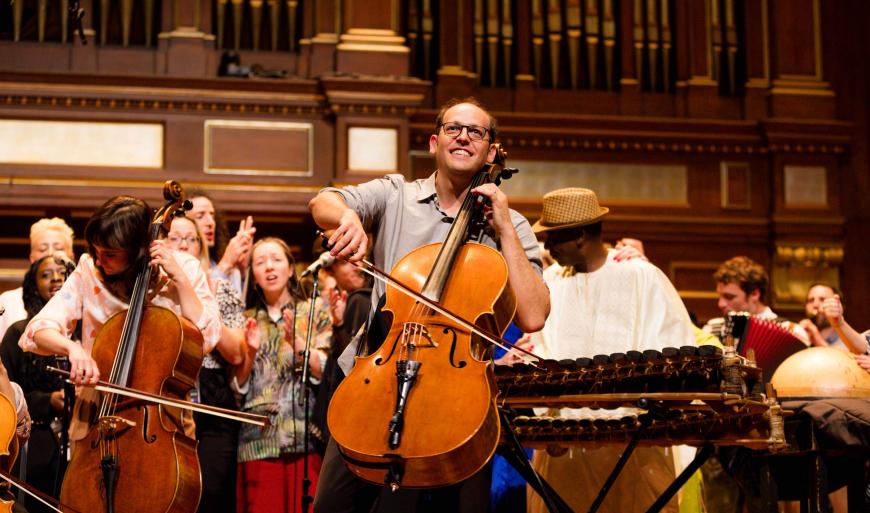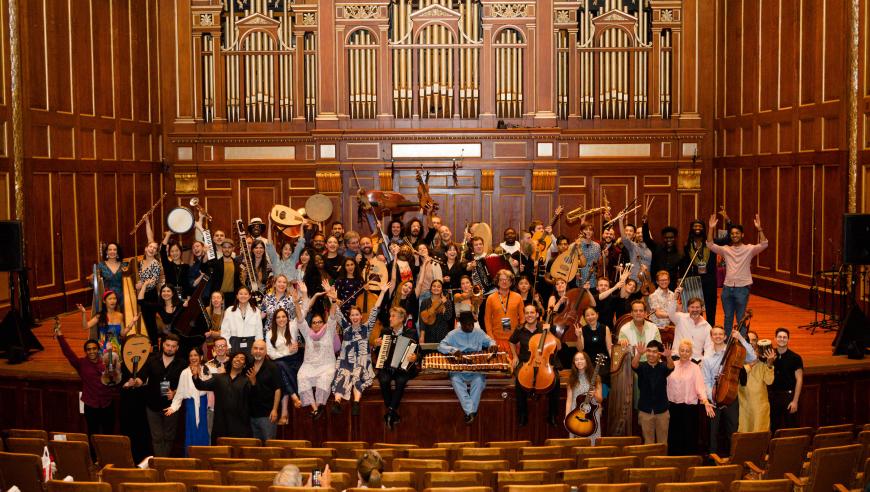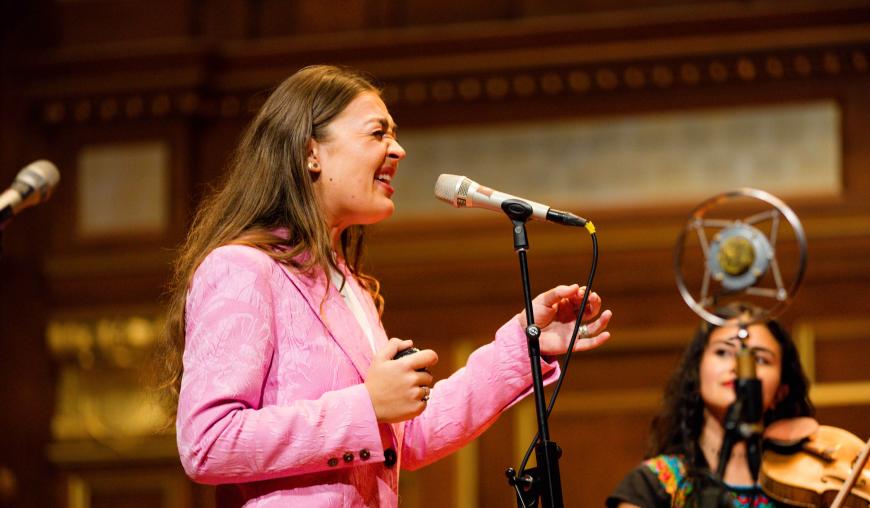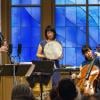
During the misery and deadly wars 2,000 years ago in Asia and Europe, the Silk Road kept moving silk and all kinds of merchandise between China and the Mediterranean.
During the misery and deadly wars today in the Middle East and Europe, the cross-cultural musical organization Silkroad continues to bring performers and audiences together.
The different spelling of Silkroad was a matter of “brand overhaul,” distinguishing the organization that Yo-Yo Ma founded in 1998 from the premodern trade network.
The ancient Silk Road was a monumental development in world history. Originating at Xi’an, the 4,000-mile caravan tract followed the Great Wall of China, bypassed the Taklamakan Desert, climbed the Pamir Mountains, crossed Afghanistan, and went on to the Levant. From there, merchandise was shipped around the Mediterranean Sea. Where there are constant crises today, commerce brought cooperation between tribes, countries, and rulers. (It also brought the Black Death, but that’s another story.)
In a groundbreaking experiment, Yo-Yo Ma enlisted musicians from the lands of the Silk Road to form a multiethnic touring ensemble performing the music of its members’ countries, “bridging geographic and cultural boundaries with the universal power of music.” The project and its positive international impact survived even during Trump-era travel restrictions and the COVID-19 pandemic.

Today, Silkroad champions social impact initiatives and educational programming alongside the creation of new music by the Grammy Award-winning Silkroad Ensemble.
The organization — now led by Artistic Director Rhiannon Giddens and Executive Director Ben Hartley — continues its Global Musician Workshop (GMW) this summer, including the first international iteration of the program in Hangzhou, China, presented in partnership with Zhejiang Conservatory of Music.
GMW Boston takes place Aug. 4–10, GMW Hangzhou Aug. 26–31. The programs in both cities include professional development workshops and a performance festival with Silkroad artists, conservatory faculty, special guests, and GMW participants. Performances are open to the public.
GMW Boston received the largest number of applicants in the program’s history, ultimately selecting 68 musicians from a pool of 218 applicants. Participants represent 28 countries and 32 instruments. The program is directed by Silkroad cellist Mike Block.
“It’s truly a stunning experience for me to sift through the applications, learn about all of these amazing musicians, and watch videos of their diverse musical gifts,” says Block.
“When the faculty and participants finally get to play together in person this August, the experience will be transformational. Music is an incredible tool to learn about the world around us and feel connected to other people from different backgrounds.
“Our collaborative process and creative explorations also provide a mirror for our participants to learn more about who they are, both as people and as artists. Understanding ourselves better, and how we can contribute to the world around us, is a core element of the GMW experience.”

Silkroad’s recent major initiative, “American Railroad,” illuminates the impact that African American, Chinese, Indigenous, Irish, and other communities had on the creation of the first U.S. transcontinental railroad and connecting railways in North America. Two other major Silkroad projects under Giddens have been “Uplifed Voices” and “Phoenix Rising.”
Pipa player Wu Man, who has served on the GMW faculty since its inception and also teaches at Zhejiang Conservatory of Music, spearheaded the launch of GMW Hangzhou. The partnership was made official last month when a memorandum of understanding was signed in the presence of government, culture, and tourism leaders from China and the U.S.
Wu Man says, “Every year, I look forward to working with the talented musicians from around the globe who come together to exchange their cultural and musical traditions. My hope is that through classes, talks, collaboration, and performance, they will make meaningful connections and have a deeper appreciation and understanding of all the world’s musical styles.”
The faculty in Boston — in addition to Block and Wu Man — includes Silkroad artists Edward Pérez and Balla Kouyaté and guest artists Jamey Haddad, Courtney Hartman, Abeer Nehme, and Kala Ramnath.
The GMW Hangzhou faculty includes Block, Wu Man, Pérez, Dong-Won Kim, Bivakar Choudhury, and Ricardo Vogt. These faculty artists represent a wide range of cultural backgrounds and musical traditions.




